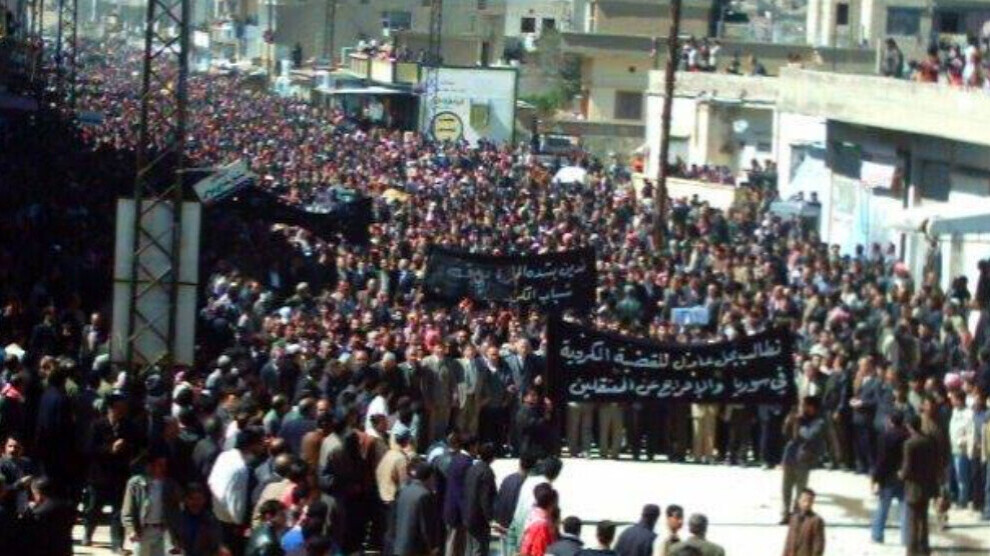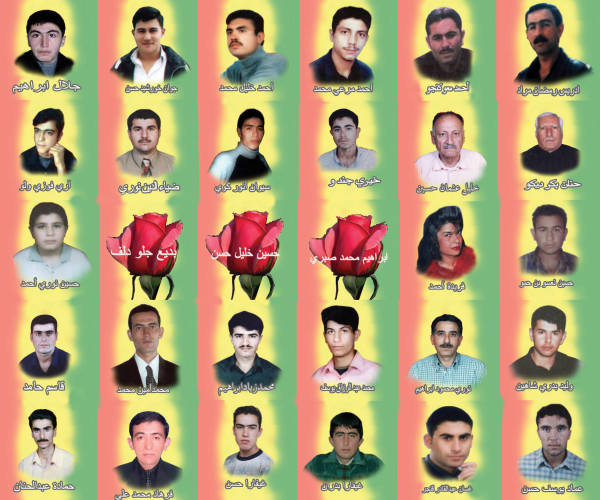Nineteen years ago, the Qamishlo Uprising
On 12 March 2004, an uprising broke out in Qamishlo, which quickly spread to all of Rojava. The Qamishlo uprising is considered to be the first mass uprising in Rojava.
On 12 March 2004, an uprising broke out in Qamishlo, which quickly spread to all of Rojava. The Qamishlo uprising is considered to be the first mass uprising in Rojava.

On 12 March 2004, nine people were killed when clashes erupted at a football match in the Kurdish-majority city of Qamishlo between supporters of a local team and those of an Arab team based in Deir ez-Zor.
The following day, mourners at the funeral procession for the victims chanted anti-Bashar al-Assad slogans and raised Kurdish flags.
Syrian security forces opened fire, killing 23 people and sparking days of protests and rioting in northern Syria’s Kurdish regions (Heseke, Kobane, Afrin) as well as Kurdish-majority neighborhoods of Aleppo and Damascus.
Kurds reacted from Afrin to Dêrik in protest at the attack against the uprising in Qamishlo and against the state repression.
The state was trying to create enmity among the peoples, seeking to create strife between the Kurdish and Arab people. Yet the Baath regime was not successful in this policy. The Qamishlo uprising sowed the seeds of a new era for the Kurds.
The Kurds established their unions and started to develop a new idea. It thus became clear that the Kurds needed a defense force, administration and organization. Contrary to what the state had planned to achieve with this massacre, hostility between the Kurdish and Arab peoples did not develop, nor did the chauvinistic feelings the state hoped to create.
It is often said that the Qamishlo uprising lit the first spark of the Rojava revolution. The "Serhildan of Qamishlo" is considered to be the first mass uprising in Rojava. The revolts were crushed by al-Assad forces but the Syrian regime was forced to recognize Kurds.
